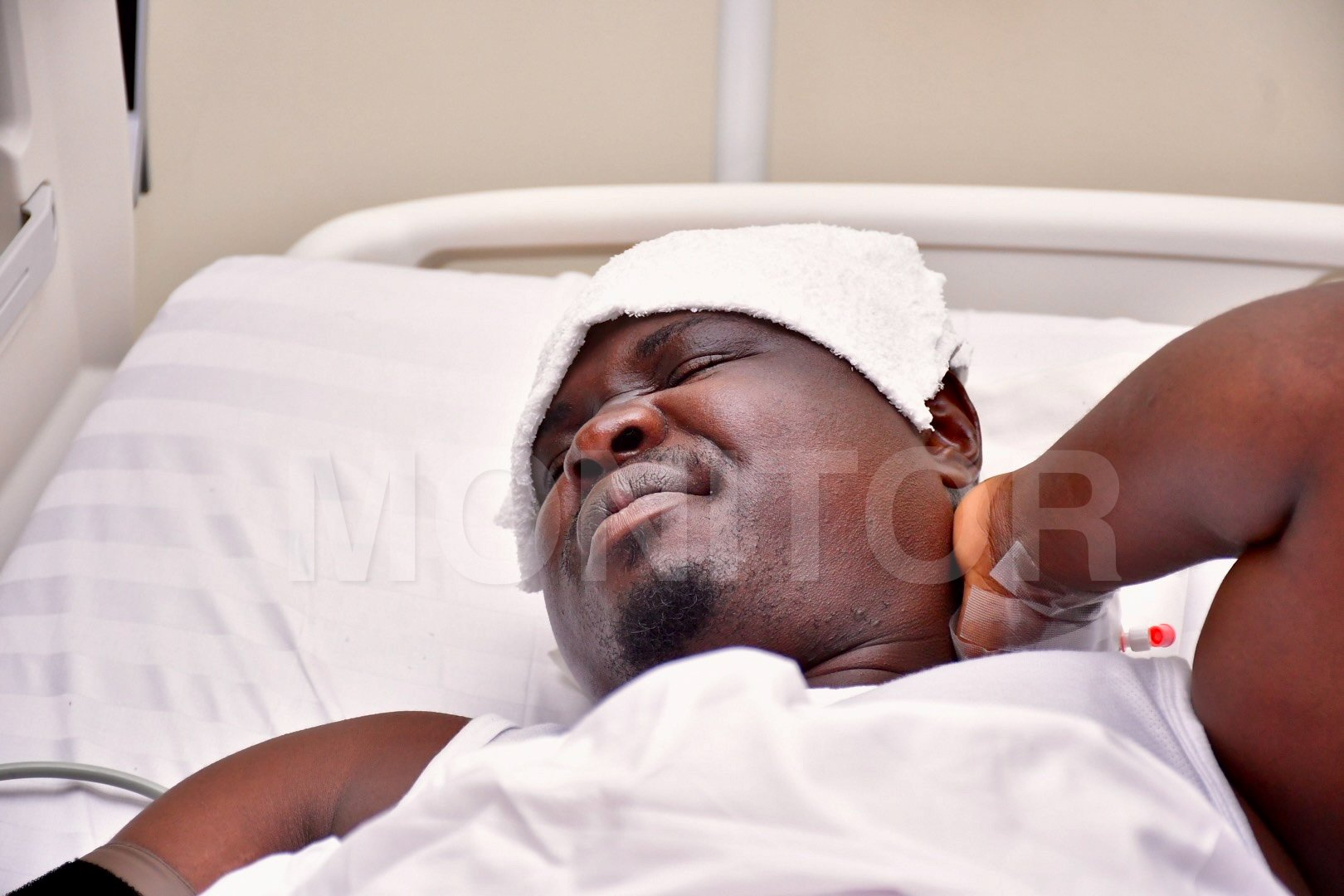Katende earning from shared spaces

Andrew Katende
What you need to know:
- Collaborations: The attitude towards collaborations has been and still is a serious problem in Uganda’s art industry, but young men such as Andrew Katende are earning big from trying to change this.
Through his brainchild, PhotoHub Uganda, Andrew Katende has created a business by offering studio space for photoshoots and photo projects.
I first heard about Katende when I noticed that most of the photographers I follow were beginning to do their indoor shoots at his studio space; with the word PhotoHub tagged in the location on their Instagram posts.
A professional photographer myself, I had to meet Katende, and when I did, he was youthful.
“I am 28 years old, a freelance documentary photographer and videographer, working with local NGOs. I created this space for photographers and videographers to create content,” he said.
In his artistically designed studio space in Kololo, Katende has multiple cameras and lenses, lighting units and modifiers, multiple photography backgrounds, a flat screen TV, a makeup table and mirror, computers, a blue velvet sofa set, and a changing room on the side.
About how he got the idea of creating this studio space, the procurement and logistics graduate said, “I noticed something we did not have in Uganda but is present in all other photography markets – collaboration. Creatives in other countries work on projects together yet in Uganda, a new creative was always looked at as a threat by those in the industry already. That is not a spirit that can grow an industry.”
He adds that for years, all photographers who owned studios used them solely, so he always wished for a space where he could go work, get guidance from experienced photographers and learn.
The project cost him about Shs130m to start, inclusive of taxes, seven months’ rent, setting up the studio space, salaries for the entire first year of operation staff, cameras, lights and modifiers, all of which were imported from The Netherlands.
The huge cyclorama studio wall was also very expensive to set up.
“After university, I did a couple of 9-5 jobs as a procurement officer, but I just could not get over the fact that I had to work 30 days before I could get paid, every month,” he says.
“I felt comfortable with photography because with it, the harder you work, the more you earn. Photography has a high-end side to it, and you can end up earning huge amounts of money on big projects. I believed I could grow in photography, and be as good as a surgeon or a lawyer. And also the freedom that comes with photography is unmatched. So I got the money to start up from my documentary work,” he reveals.
In times where everything can be learnt online, one might wonder if Katende worries that budding photographers can choose to master their craft online rather than pay for the skill.
“YouTube on its own is not enough. Photography unlike other skills, is nurtured with practice. The more you shoot is the more you learn, because there are things that cannot be taught by YouTube. It needs other factors to make it efficient. You need mentorship, practice, equipment, and different work situations. You need to understand your camera and gear, how to run a photography business, how to conduct yourself and relate with people, how to market your work and how to deal with clients from hell. You have to get out in the field and understand the professionalism of the craft.”

A photographer at work in the PhotoHub studio. Photographers pay Shs100,000 per day to use the space. Photos | Courtesy | Photohub
Mentorship
He says in the early stages of his photography career, he had no formal education. He started out through mentorship and tagging along with established photographers. After university, he did a short course in photojournalism in Kigali, which has helped him.
On whether his brainchild has worked out according to his initial vision, he said his revised vision is to create more branches.
“We only have one right now, which is starting to have capacity issues since we have a lot of traffic. We are unable to have multiple sessions at the same time, so we are looking to expand. But as far as pushing the idea of collaboration, we have done an amazing job. We have facilitated the growth of young creatives who believe in working together,” he said.
In the next two years, Katende hopes to launch two new PhotoHub spaces in Kigali and Dar-es-Salaam and Nairobi will come after. After tapping into the East African market, he will set up shop in Nigeria, and believes that this will catapult his business to greater heights. And in the next 20 years, he would love to have a PhotoHub across Africa.
Great opportunities
Pius Kibazzi, a documentary photographer who has collaborated with The PhotoHub on various projects, says apart from simply enjoying and making friends in the industry, collaborating on a shoot is a great opportunity to push your creativity, try out new gear, and learn from one another.
“I am a full time photographer and I am fascinated by exploring creative possibilities. My goal is to show the beauty, strength and enthusiasm of people. I have been in business for many years, and I have seen my business grow from a one-man army to a diversified company, thanks to people like Katende,” Kibazzi, the proprietor of Kibazzi Kraft Uganda, said.
He commends the time management and professionalism in general exhibited by Katende and his colleagues, since studio space is paid for per hour and every minute counts.
Koller Job K, alias Rud Kaiser, another client of Katende, said: “He is unique. He connects with all sorts of photographers in the country. He has no ego, he supports everyone equally.”
Photographers pay Katende about Shs100,000 per hour to use The PhotoHub space and lighting equipment, and pay an extra Shs50,000 if they do not have cameras. This saves them the burden of having to pay rent for their own studio space.
Katende says in two years as he plans his wedding, he wants Nigerian wedding photographer Dedge Amafo to shoot it: “He is out of this world, and I like that he does not use a flash. My Ugandan photographer friends must attend as invited guests. I cannot hire any of them to work; they will have a special tent.”
For aspiring photographers, Katende advises, “If you are passionate about something, first understand the best people at it in your market. When you find those you look up to, imitate them and then seek mentorship. Make their lives hard with questions, but only seek this mentorship when you have an idea about photography. Do not go to someone when you do not even know how a camera works.”




